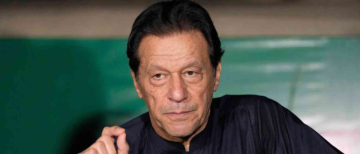India is currently debating whether to ban social media use for children under the age of 16, inspired by Australia’s recent legislation that enforces such a ban. This discussion is gaining traction amid growing concerns about the impact of social media on young minds, but it also raises questions about feasibility, rights, and the best way forward.
Why Consider a Ban on Social Media for Kids Under 16?

Australia became the first country to pass a law banning social media for children below 16 years, citing issues like mental health problems, cyberbullying, and screen addiction. The Australian law requires social media companies to verify users’ ages and block those under 16, with hefty fines for non-compliance. The aim is to protect children from harmful content and online dangers such as identity theft and exposure to inappropriate material.
In India, many parents and experts share similar concerns. Social media platforms expose children to unrealistic beauty standards, cyberbullying, misinformation, and excessive screen time, which can affect their mental health and academic focus. Some educators support stricter regulations, arguing that many children are not mature enough to handle the negativity and risks present online.
Current Legal Framework in India

India does not yet have a law banning social media for children under any specific age. However, the Digital Personal Data Protection Act, 2023, requires companies to obtain verifiable parental consent before processing personal data of individuals under 18 years. This means children’s data is protected to some extent, but there is no outright ban on their social media use.
The Supreme Court of India recently declined to entertain a plea seeking a ban on social media use for children under 13, stating that such a decision falls under legislative policy, not judicial intervention. The Court directed petitioners to approach the government for policy formulation.
Arguments For and Against a Ban
Arguments in Favor
-
Mental Health Protection: Social media can increase anxiety, depression, and addiction among children due to constant comparisons and online harassment.
-
Focus on Education: Less social media use could reduce distractions, helping children concentrate better on studies.
-
Cyber Safety: Young users are vulnerable to cyberbullying, scams, and privacy breaches; a ban could shield them until they are mature enough.
-
Reducing Exposure to Harmful Content: Children might avoid inappropriate or violent content that is prevalent on many platforms.
Arguments Against
-
Freedom of Expression and Access to Information: Social media is a vital source of news, learning, and cultural exchange. A total ban might limit children’s opportunities to engage with the world responsibly.
-
Practical Challenges: Enforcing a ban is difficult as children may find ways to bypass age restrictions, and it could drive them to unregulated platforms.
-
Focus on Education Instead of Restriction: Many experts suggest that teaching digital literacy and responsible use is better than outright bans. Schools and communities can help children learn to navigate social media safely.
What Could Be a Balanced Approach for India?

India’s large youth population actively uses social media, and a total ban might not be practical or beneficial. Instead, a middle path could involve:
-
Parental Consent and Monitoring: Strengthening laws like the Digital Personal Data Protection Act to ensure parents are involved in children’s social media use.
-
Age-Appropriate Platforms: Encouraging development of kid-friendly social media with strict content moderation.
-
Digital Literacy Programs: Integrating cyber safety and responsible social media use into school curricula to empower children.
-
Regulatory Oversight: Government and tech companies working together to enforce age verification and protect children’s data and privacy.
Final Note
The question of whether India should ban social media for kids under 16 is complex. While protecting children from online harms is crucial, an outright ban may not be the best or most feasible solution. Instead, India could focus on education, parental involvement, and stricter data protection laws to create a safer digital environment for children. This balanced approach would allow children to benefit from social media’s positive aspects while minimizing its risks, preparing them to be responsible digital citizens as they grow.

This nuanced debate reflects the need for thoughtful policy that safeguards children without stifling their access to information and expression in the digital age.
With inputs from agencies
Image Source: Multiple agencies
©️ Copyright 2025. All Rights Reserved Powered by Vygr Media.

















